RESPIRATORY MEDICINE
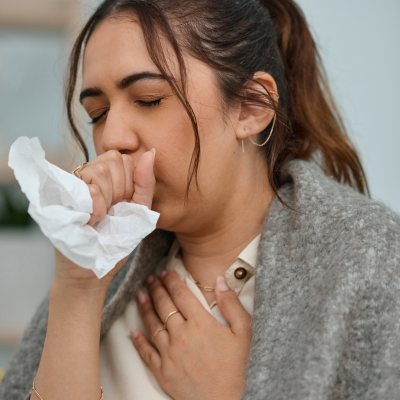
Tuberculosis (TB) Treatment
Tuberculosis (TB) treatment involves a comprehensive approach to eradicate the infection and prevent its spread. The primary treatment for active TB is a course of antibiotics, typically lasting six to nine months. The most commonly prescribed medications include isoniazid, rifampicin, ethambutol, and pyrazinamide.
Adherence to the full treatment regimen is crucial to avoid drug resistance and ensure effective recovery. In some cases, directly observed therapy (DOT) may be recommended, where a healthcare provider supervises medication intake.
For latent TB infection, a shorter course of treatment may be prescribed to prevent progression to active disease. Our dedicated healthcare team provides thorough support and education, ensuring patients understand their treatment plan and its importance in achieving a full recovery.

Asthma Clinic
Our Asthma Clinic offers specialized care for individuals managing asthma, a chronic respiratory condition marked by wheezing, shortness of breath, and chest tightness. We provide comprehensive assessments, including allergy testing and pulmonary function tests, to tailor treatment plans to each patient’s needs. Our team focuses on medication management, educating patients about inhalers and nebulizers, and teaching effective self-management strategies to minimize symptoms and prevent exacerbations. We also provide ongoing support through regular follow-ups and personalized asthma action plans. Our goal is to empower patients to achieve optimal control of their asthma, enhancing their overall quality of life.

Allergy Clinic
Our Allergy Clinic specializes in diagnosing and managing a wide range of allergic conditions, including allergic rhinitis, asthma, food allergies, and skin reactions. We conduct thorough evaluations that may include skin tests and blood tests to identify specific allergens responsible for symptoms.
Personalized treatment plans are developed for each patient, incorporating allergen avoidance strategies, medications, and immunotherapy options, such as allergy shots. Our team also provides education on managing allergies and anaphylaxis, ensuring patients and their families feel empowered and informed. With a focus on comprehensive care, we strive to improve quality of life and reduce the impact of allergies on daily activities.
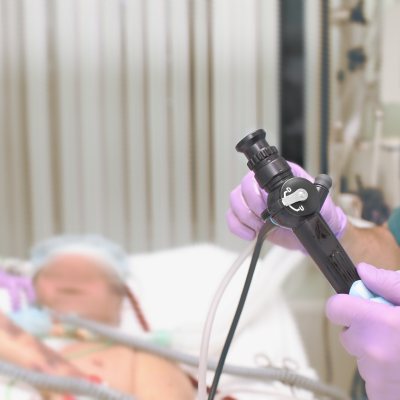
Bronchoscopy
Bronchoscopy is a minimally invasive procedure that allows healthcare providers to examine the airways and lungs using a flexible tube called a bronchoscope. This procedure is typically performed to investigate respiratory issues such as persistent cough, wheezing, or abnormal imaging results.
During bronchoscopy, the bronchoscope is inserted through the nose or mouth and guided into the lungs, providing direct visualization of the airways. It may also be used to collect tissue samples (biopsies), remove obstructions, or administer treatments directly to the lungs.
Patients are usually given sedation for comfort, and the procedure is performed in a controlled environment. Our dedicated pulmonary team is committed to providing comprehensive care and support throughout the bronchoscopy process, ensuring optimal outcomes for each patient.
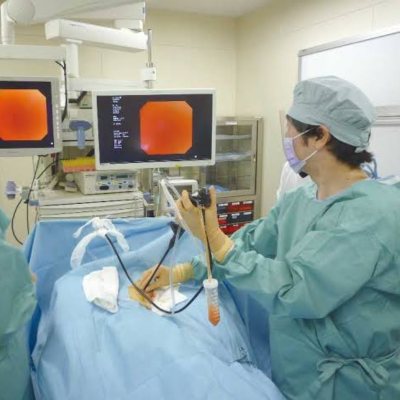
Thoracoscopy
Thoracoscopy, also known as video-assisted thoracoscopic surgery (VATS), is a minimally invasive procedure used to examine and treat conditions in the chest, particularly those affecting the lungs and pleura. During the procedure, small incisions are made in the chest wall, and a thoracoscope equipped with a camera is inserted, allowing the surgeon to visualize the thoracic cavity on a monitor.
Thoracoscopy can be used for diagnostic purposes, such as obtaining biopsies or evaluating lung disease, as well as therapeutic interventions, including the removal of tumors, drainage of pleural effusions, or treatment of lung conditions.
Patients typically experience less pain and faster recovery compared to traditional open surgery. Our skilled thoracic surgery team is dedicated to providing comprehensive care and support throughout the thoracoscopy process, ensuring optimal outcomes for each patient.

Sleep Studies
Sleep studies, or polysomnography, are comprehensive tests conducted to diagnose sleep disorders, including sleep apnea, insomnia, and restless leg syndrome. These studies monitor various physiological parameters during sleep, such as brain activity, eye movements, heart rate, and breathing patterns.
The procedure typically takes place in a specialized sleep lab, where patients are connected to sensors that track their sleep cycles and any disturbances throughout the night. The data collected helps healthcare providers understand the nature of the sleep disorder and formulate effective treatment plans.
Our dedicated sleep medicine team works closely with patients to provide a comfortable environment and personalized care, aiming to improve sleep quality and overall health.
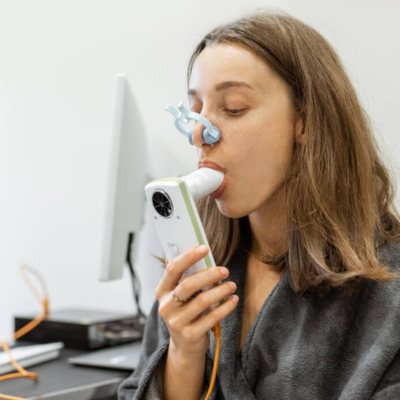
PFT
Pulmonary Function Tests (PFTs) are a group of non-invasive tests that assess lung function and capacity. These tests measure how well the lungs take in air, how effectively they transfer oxygen into the bloodstream, and how well they expel carbon dioxide.
PFTs are commonly used to diagnose conditions such as asthma, chronic obstructive pulmonary disease (COPD), and restrictive lung diseases. The testing process typically involves a series of breathing maneuvers using specialized equipment, such as spirometers, to gather precise measurements of lung volumes and airflow.
Our dedicated respiratory team interprets the results to provide valuable insights into lung health, guiding treatment plans and ongoing management for patients with respiratory conditions.
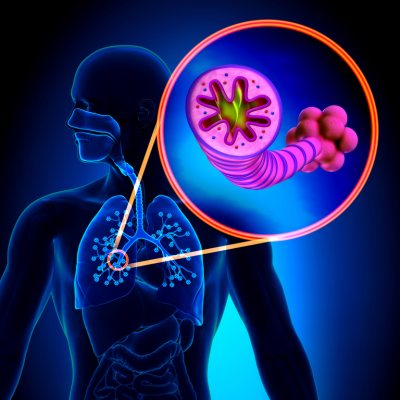
COPD Clinic
Our COPD Clinic specializes in the comprehensive management of Chronic Obstructive Pulmonary Disease (COPD), a progressive lung condition that affects breathing. We provide personalized care through thorough assessments, including pulmonary function tests and symptom evaluations, to determine the severity of the disease.
Our multidisciplinary team focuses on creating individualized treatment plans that may include medication management, pulmonary rehabilitation, and education on lifestyle modifications, such as smoking cessation and proper inhaler techniques. We also offer support for managing exacerbations and improving overall quality of life.
With a commitment to patient-centered care, our COPD Clinic aims to empower individuals to better manage their condition and enhance their lung health.
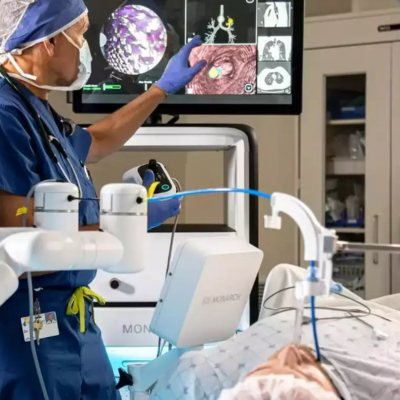
Lung Cancer Clinic
Our Lung Cancer Clinic offers specialized care for individuals diagnosed with lung cancer, focusing on comprehensive evaluation and personalized treatment plans. Our multidisciplinary team, including oncologists, radiologists, and support staff, collaborates to provide a thorough assessment using advanced imaging and diagnostic tools.
We develop tailored treatment strategies that may include surgery, chemotherapy, radiation therapy, and targeted therapies based on the specific type and stage of lung cancer. Our clinic also emphasizes patient education and support, helping individuals navigate their diagnosis and treatment options.
With a focus on compassionate care, our Lung Cancer Clinic is dedicated to improving outcomes and enhancing the quality of life for patients and their families throughout their journey.

Pneumonia
Pneumonia is an infection that inflames the air sacs in one or both lungs, which may fill with fluid or pus, causing symptoms such as cough, fever, chills, and difficulty breathing. It can be caused by various pathogens, including bacteria, viruses, and fungi.
Diagnosis typically involves a physical examination, imaging tests like chest X-rays, and laboratory tests to identify the specific organism responsible for the infection. Treatment depends on the cause; bacterial pneumonia is often treated with antibiotics, while viral pneumonia may require supportive care.
Our dedicated healthcare team focuses on providing comprehensive care, including symptom management, education on preventive measures, and follow-up support to ensure a smooth recovery. Prompt diagnosis and treatment are crucial for optimal outcomes.

Plural Effusion Empyema
Pleural effusion is the accumulation of fluid in the pleural space, the area between the lungs and the chest wall. When this fluid becomes infected, it can lead to empyema, a condition characterized by pus accumulation in the pleural cavity. Empyema often occurs as a complication of pneumonia, lung abscesses, or chest trauma.
Symptoms of pleural effusion may include shortness of breath, chest pain, and a persistent cough. In cases of empyema, additional symptoms like fever and chills may be present. Diagnosis typically involves imaging studies, such as chest X-rays or ultrasound, and may require thoracentesis to analyze the fluid.
Treatment options for pleural effusion include draining the fluid through thoracentesis or placing a chest tube. For empyema, antibiotic therapy and possible surgical intervention, such as video-assisted thoracoscopic surgery (VATS), may be necessary to remove infected material. Our dedicated healthcare team is committed to providing comprehensive care and support throughout the diagnosis and treatment process.
